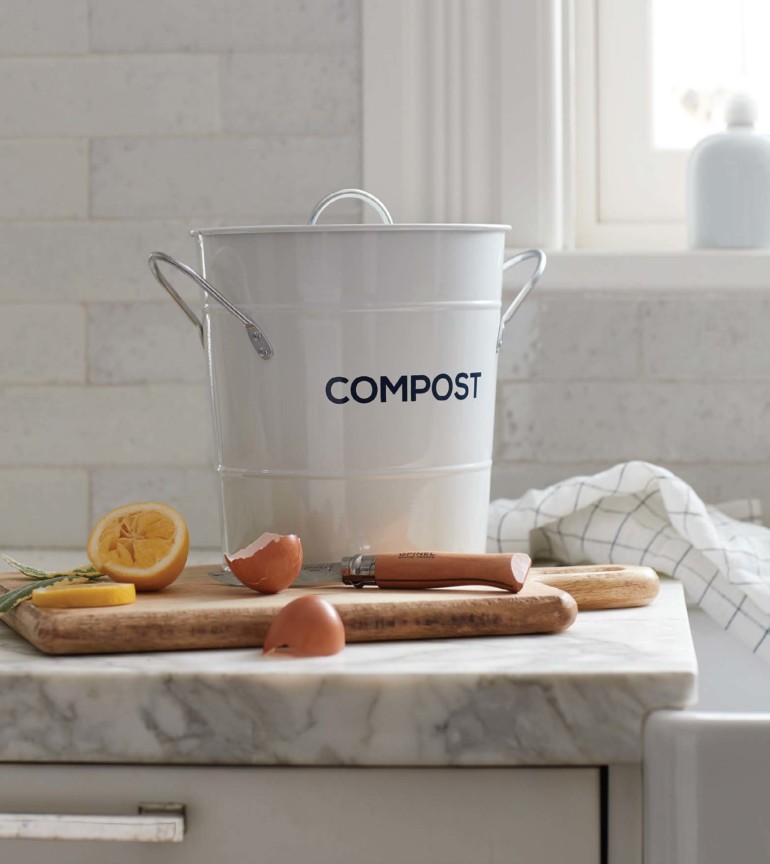While we know it’s beneficial to eat organic and important to shop local and bring our own bags, we don’t always know what should go in our curbside waste bins. Turns out, nearly six million tons of food is sent to landfills yearly in California. And organic material, decomposing in landfills alongside tons of garbage, produces methane, one of the most environmentally destructive greenhouse gases. So what’s the best way to handle food scraps and green waste at home? Here are composting tips to clarify this sometimes puzzling issue and get you on a cleaner, greener path.
- FARM APPROVED Nearly 90 percent of Marin’s food scraps and yard trimmings go to Redwood Landfill’s WM EarthCare of Marin composting facility in Novato. This state-of-the-art facility produces compost approved for organic farming.
- KITCHEN CAN Designate a kitchen food compost container, available online or at home improvement stores, or use a dishwasher-safe bowl for this purpose. Boon Supply in Mill Valley sells compost bins and donates $14 to the charity of your choice for each one sold.
- POST IT List acceptable food scraps near the container or post on the fridge for a quick reminder.
- LINER NOTES To prevent leaks and minimize odors, line your container with brown paper bags or newspaper, which can be tossed into the green can as well.
- CURB YOUR ENTHUSIASM Dump your container’s contents into your outdoor organics can daily, to avoid smells and household pests, and remember to bring your can out to the curb every week.
- WHAT’S REFUSED? Marin County has several major refuse service providers; ask yours what items are acceptable as compost. For a complete list of what can and can’t go in the Waste Management curbside can, plus other helpful info, visit Redwood Landfill’s handy guide.
- THE YES LIST Fruits and vegetables (skins, seeds and pits), seafood bones and shells, grains, bread, eggshells, dairy (cheese, butter and yogurt), meat and bones and congealed grease (in a paper container), paper napkins, paper towels, uncoated paper plates (no surface sheen), greasy pizza boxes, coffee grounds and filters, paper tea bags, paper bags, newspaper, shredded bills, yard trimmings and untreated wood are all good to go.
- THE NO LIST Just because a label says a product is “compostable” or “biodegradable” doesn’t mean it is. If the item is not recognized by the U.S. Department of Agriculture as compost suitable for organic farming, then keep it out of your can. That includes corn-, sugar- or potato-based utensils and containers and some so-called compostable or biodegradable bags; paper cups (99 percent have plasticized liners), envelopes with plastic windows, diapers, pet waste, treated wood, plywood, painted or stained wood, rocks and dirt.
This article originally appeared in Marin Magazine’s print edition with the headline “A Scrappy Idea”.


